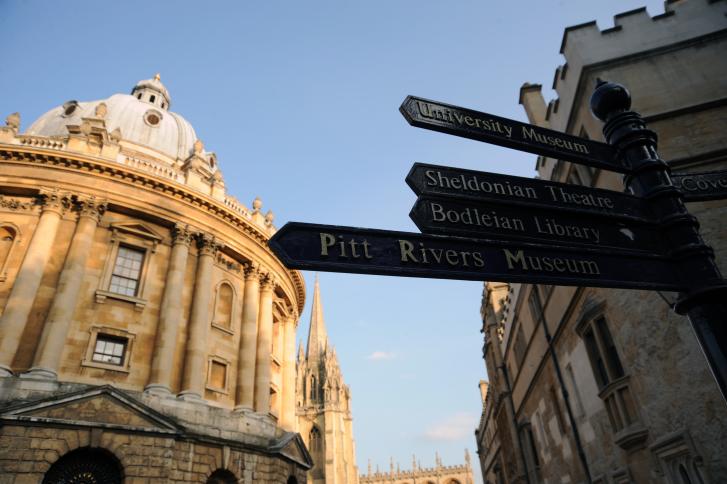
Main recovery will come next spring onwards, say experts
Oxfordshire’s £2.3bn visitor economy has been hit hard by the coronavirus pandemic, with much of it unlikely to recover until this time next year.
A panel of experts in the sector, brought together by OxLEP, agreed that local support could be crucial to help the region’s visitor attractions and cultural organisations gradually re-build their businesses.

Hayley Beer-Gamage, chief executive of Experience Oxfordshire, outlined the stark facts facing the county’s tourism-related businesses, where losses for April alone have amounted to up to £137.5m, and many have seen all of their forward bookings cancelled.
Hayley said: “Most of our visitor economy businesses are closed, with only a few managing to diversify. The situation is really severe.”
Many questions remain about how and when businesses can reopen. “We are now beyond planning for peak season,” added Hayley. “If attractions can only open up at 30-50% of capacity, they will have to ask if that’s viable.” She predicted that as many as 70% of the county’s 40,000 visitor workforce “won’t have jobs to go back to.”
Life is equally hard for the arts, said Hedley Swain, south east area director for the Arts Council England, which has provided cultural organisations with a £160m rescue package.
Hedley said: “It’s a shock for a sector built around social interaction. There is no one-size-fits-all for recovery, but theatres and museums are beginning to look at how they might return with social distancing. There are still many imponderables including how the disease will behave, what the government will do and whether people will feel comfortable and safe.”
The take-up of central and local government-backed grants and loans has not been high within this sector, and this was confirmed by Tagore Ramoutar, managing director and co-founder of TOAD, The Oxford Artisan Distillery.
Having lost 100% of online bookings for distillery tours, the business has diversified into online bottle sales and making hand sanitiser. Tagore said that while the furlough process had been relatively smooth, requirements for the government-supported loans were more onerous, especially for start-ups: “Many businesses have been making sure their staff are OK first, but more may start to make the loan applications now,” he predicted.
The sector was one of the first to shut down and may be one of the last to come back. Many are starting to consider how it can function with the new reality of social distancing and smaller numbers. Hedley Swain was confident that the cultural sector will recover by finding new ways to engage, helped by the fact that many theatres and arts institutions understood their audiences very well.
The panellists agreed that the first green shoots may come via the significant goodwill of people in the region. Recovery could start small with local or even family-based visit groups, before being gradually built up through domestic visitors, and then international audiences – which account for 40% of spend.
“People here are still accruing holidays and no-one will be going abroad,” said Tagore. “They may have less disposable income but might be willing to support local experiences as an everyday treat."
“I have no doubt that our wonderful music, theatre and arts in Oxfordshire, will come back,” said Hedley Swain, “But we will all have to pull together and accept that it’s going to be a slog.”
He said the sector should plan on recovery over two years, with support from the Arts Council, local and central government, the Heritage Lottery Fund and the local enterprise partnerships such as OxLEP.
“There is still faith in the visitor economy,” said Hayley Beer-Gamage, who pointed out that large investment projects such as Creative City in Upper Heyford and the £250m classic car museum near Chipping Norton, are still going ahead. “But the reality is that recovery will be slow and it will take us a few years to get back to where we were. I’d like to think that by this time next year our visitor attractions, hotels, theatres, arts, and retail will all be starting to see a much more positive recovery.”
The Q&A was chaired by broadcaster Howard Bentham.
WATCH: 'How can Oxfordshire’s visitor economy recover from the coronavirus pandemic'




